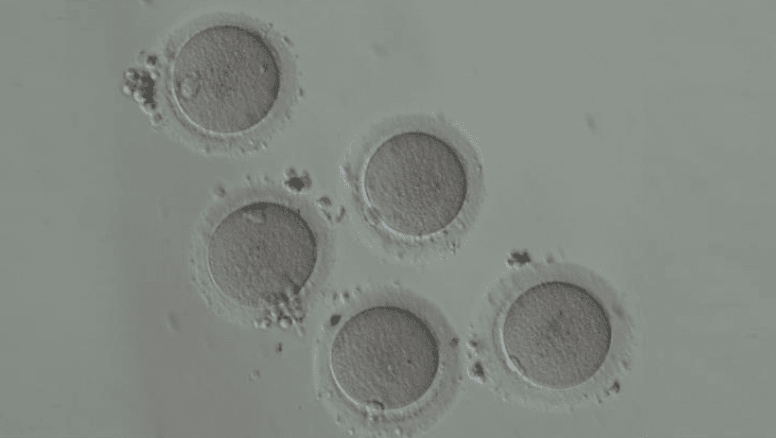
Egg Freezing Explained
Egg freezing has become a powerful option for women who want to preserve their fertility for the future. Whether it’s due to career plans, medical reasons, or personal choice, understanding who should consider it — and how the process works — is essential. Let’s break it down.
You wake up in your 30s or 40s, wondering: will I still be able to have a baby when I’m ready? Maybe you’re focused on your career, or still waiting for the right partner. Or maybe life just hasn’t followed the timeline you imagined. And the clock? It’s ticking louder every year.
But what if you could press pause? Egg freezing—also known as oocyte cryopreservation—offers women the chance to preserve their fertility, giving hope and options for the future. It’s no longer an experimental procedure; it’s an empowering choice backed by science.
Egg Freezing Explained:Who Should Consider it?
Egg freezing isn’t just for celebrities or influencers. It’s for every woman who wants more time and control over her reproductive choices. Here’s who might benefit the most:
- Women delaying pregnancy for personal or career reasons: If you’re focused on education, building a career, or haven’t met the right partner, freezing your eggs before 35 preserves better-quality eggs for the future.
- Women facing medical treatments that threaten fertility: Chemotherapy, radiation, or ovarian surgery can damage your egg reserve. Freezing eggs beforehand offers a safeguard.
- Women with endometriosis or family history of early menopause: These conditions may accelerate fertility decline. Egg freezing keeps doors open later.
- Women undergoing IVF but wanting flexibility: Some women prefer freezing eggs instead of embryos, avoiding legal or ethical issues linked to embryo storage.
Egg Freezing Explained: How Does it Work?
The process may sound intimidating, but advances in technology have made it smoother and more effective. Here’s a step-by-step breakdown:
- Ovarian Stimulation: You’ll take hormone injections for 10–14 days to stimulate multiple eggs. Doctors monitor you via ultrasound and blood tests.
- Egg Retrieval: When the eggs are mature, a minor procedure retrieves them using a thin needle under light sedation.
- Freezing: The eggs are flash-frozen through vitrification—a rapid method that prevents ice crystals and improves survival rates.
- Storage: Frozen eggs are kept in liquid nitrogen at -196°C. They can remain stored for years, though most clinics recommend using them within 10–15 years.
Egg Freezing Explained – Success Rates: What Are the Chances?
One question women ask: “How many eggs do I need to freeze?” The answer depends largely on your age:
- Under 35: Freeze 10–15 eggs for a strong chance of 1 live birth.
- 35–37: Freeze 15–20 eggs.
- 38–40: Freeze 20–30 eggs.
- Over 40: Freeze 30+ eggs—but understand success rates drop significantly after 40.
Each egg’s chance of resulting in a live birth declines with age. Freezing before 35 offers the highest success, as younger eggs have better quality and survival after freezing, thawing, and fertilization.
Egg Freezing Explained – Costs: Is Egg Freezing Affordable?
Cost is a major consideration. Prices vary by country and clinic:
| Country | Average Cost per Cycle (USD) |
|---|---|
| United States | $6,000 – $15,000 |
| UK | $5,000 – $8,000 |
| Canada | $8,000 – $12,000 |
| Brazil | $3,000 – $5,000 |
| India | $2,000 – $4,000 |
Storage fees add $300–$1,000 per year. Some employers now cover egg freezing as a benefit, so check your insurance or HR policies.
Egg Freezing Explained – Risks and Limitations
While egg freezing offers hope, it’s not a guarantee. Key risks include:
- Ovarian Hyperstimulation Syndrome (OHSS): Hormonal treatment may cause bloating, nausea, or discomfort. Severe cases are rare.
- Egg Survival Rate: Not all eggs survive freezing and thawing; survival rates range 80–90% with vitrification.
- No Guarantee of Pregnancy: Even with many frozen eggs, pregnancy depends on egg quality, sperm quality, and uterine health.
Egg Freezing Explained – Egg vs. Embryo Freezing: Which is Better?
Both options have pros and cons:
- Egg freezing: Ideal for single women or those wanting flexibility. Avoids legal/ethical issues around embryos.
- Embryo freezing: Offers slightly higher live birth rates but requires sperm and is less flexible for single women.
Egg Freezing Explained – Final Thoughts
Egg freezing isn’t just a medical procedure—it’s an emotional, financial, and personal decision. It offers peace of mind, but it’s not a guarantee. The earlier you freeze, the better your chances. Talk to a fertility specialist to explore your ovarian reserve and personal goals.
For many women, freezing eggs represents more than biology—it’s about keeping dreams alive, even when life’s timeline shifts.
This article is for informational purposes only and does not replace medical advice. Consult a healthcare professional for personalized guidance.
Egg Freezing Explained – References
- Cardim, H.J.P. Vencendo a Dificuldade de Engravidar. Editora Pensamento-Cultrix Ltda, 2009.
- Practice Committee of the ASRM. “Egg Freezing Guidelines.” Fertility and Sterility, 2022. DOI: 10.1016/j.fertnstert.2022.01.016
- ESHRE (European Society of Human Reproduction and Embryology). “Oocyte Cryopreservation: Success Rates and Recommendations.” Human Reproduction Update, 2023. Available at: https://academic.oup.com/humupd/article/29/4/455/7191461
- Cobo, A.; Garcia-Velasco, J. “Oocyte Cryopreservation for Age-Related Fertility Decline.” Journal of Assisted Reproduction and Genetics, 2022. DOI: 10.1007/s10815-022-02591-9
- Smith, R.; Kilani, S. “Long-Term Outcomes of Egg Freezing: A Systematic Review.” Human Reproduction, 2023. Available at: https://doi.org/10.1093/humrep/dead123

